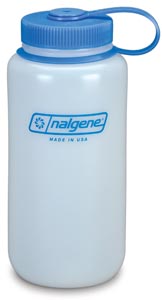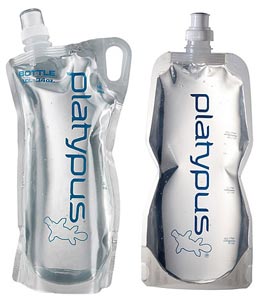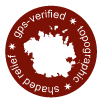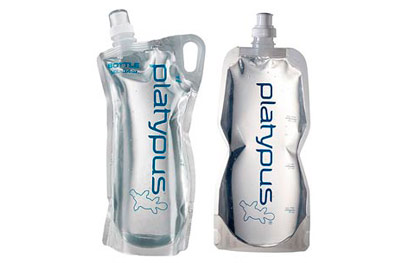Gear Advice: Water Bottles for Pohnpei

Hard-Sided Bottles
Hard-sided plastic bottles made by companies like Nalgene are a common choice among backpackers.
PROS: They don’t leak in your bag or crack when dropped (at least the stalwart classic model).
CONS: They’re heavy and bulky, and an empty bottle will take up just as much space in your pack as a full one. This is a problem when you’re doing longer hikes, where every bit of your backpack real estate is precious, or when covering very rough terrain, when you want your load as light as possible.

Collapsible Bottles
An alternative to hard bottles are soft-sided bottles, like those sold by Platypus. These are essentially the modern version of the water skin. They have small openings to prevent the water from spewing out when handled.
PROS: They’re light and can compress to next to nothing when empty.
CONS: They can rip or puncture, and they aren’t as easy to refill as hard-sided bottles because of the small mouths.

Hydration Bladders / Reservoirs
A third choice for water storage is a hydration bladder or reservoir. This is essentially a large, plastic water sack with a drinking tube and valve at one end. Bladders usually go with a canvass or nylon pouch or backpack-style carrier. Many good companies make them, including Camelbak, Platypus, MSR, Nalgene, and Osprey.
PROS: There are several really strong points to using bladders. They allow you to distribute the weight of the water you’re carrying evenly across your back, and they are lighter than hard-sided bottles. The bladders are designed to lay flat, and because they are soft-sided, you’ll never have to worry about the corner of a bottle sticking into your ribs or scapula as you hike. You can find backpacks with an outside pocket specifically designed to hold the reservoir. The reservoir doesn’t need to be removed from your pack in order to drink, because the drinking tube is always hanging over your shoulder. In fact, you don’t even need to stop hiking; you can just grab the valve with your mouth and bite down on it to drink as you chug along. Almost all bladders have a large screw-top opening, which makes filling them easier.
CONS: Reservoirs are designed to carry all your water, so they tend to be much bigger than soft-sided bottles, and as you drink the water, what’s left sloshes around a lot until you stop to refill. Marginally annoying. They are also heavier than soft-sided bottles, mainly due to the drinking tube. Like soft-sided bottles, bladders can be punctured or torn and are also prone to leaks at the seams. Filling them completely can be a challenge if you’re dealing with a stream or waterfall; you’ll need someone to hold the bladder up in the air and then either pour or pump water into it (you can’t fill it while the thing is lying on the ground). The bite valves get chewed up over time and don’t work as well anymore. They can also clog easily if there’s any sediment in your water. Perhaps the biggest drawback is keeping bladders clean. They don’t dry easily inside and are prone to bacterial and fungal growth; it is necessary to regularly flush them with vinegar, baking soda, or bleach. Sometimes the water can taste a bit funky compared to other types of water storage — probably due to the previous point. Finally, bladders are the most expensive option for water storage.
For an in-depth review of the top 10 hydration bladder models on the market, check out this article at SealGrinderPT.


